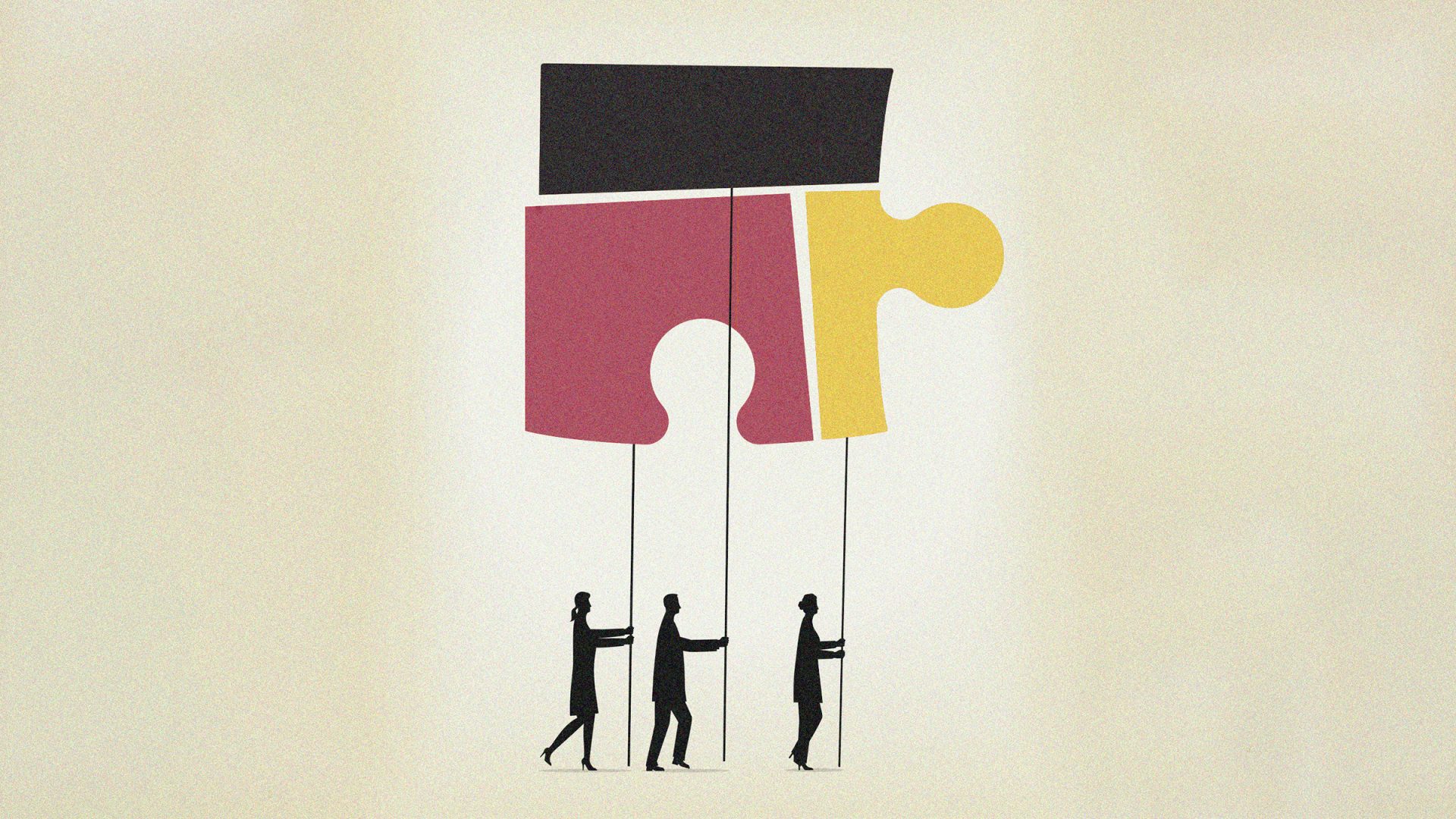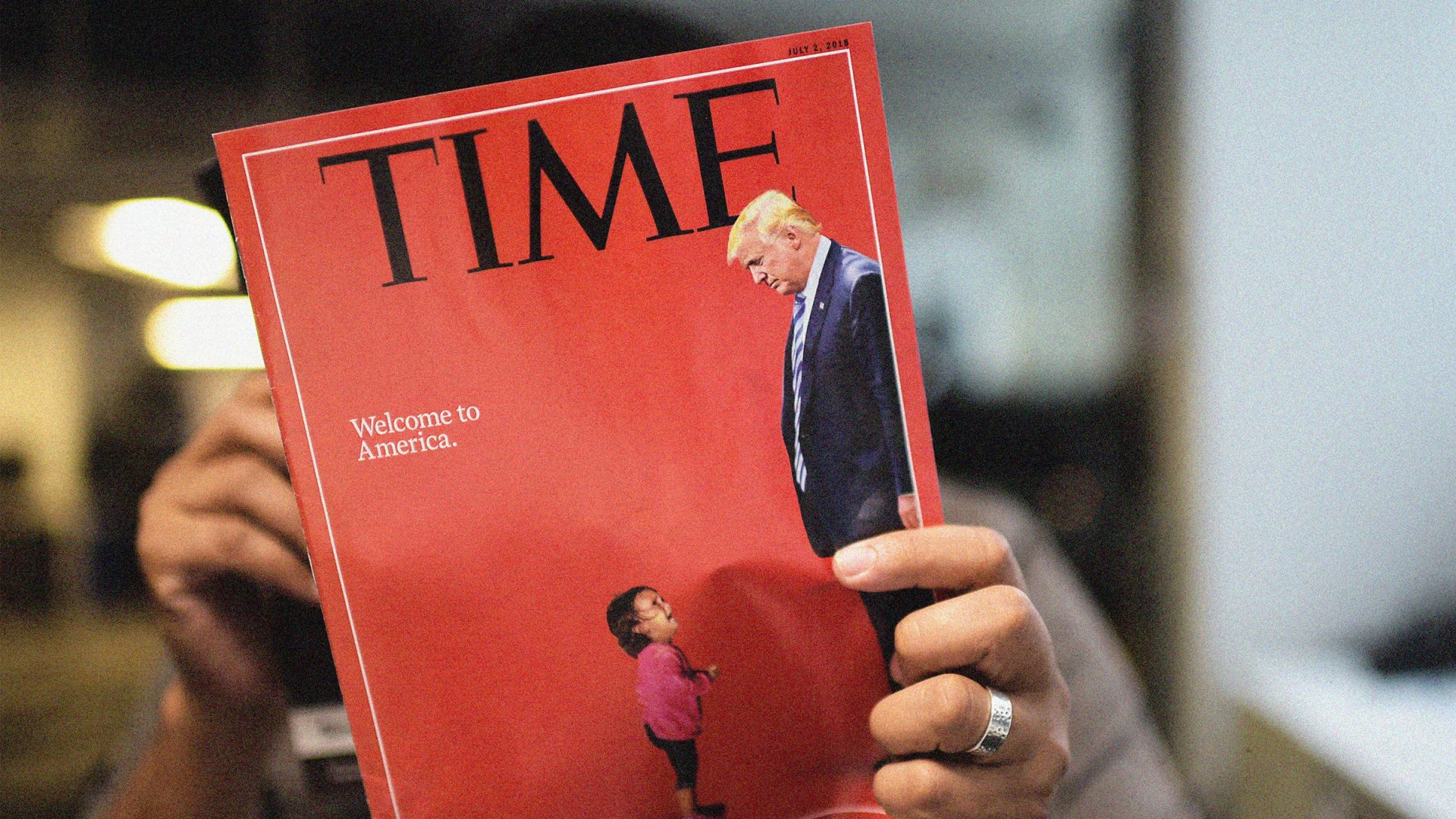One more week and Germany will have a proper Bundeskanzler again, not just a managing director, as Olaf Scholz has been since the election. Actually, even before that.
Scholz’s successor, Friedrich Merz, will exceed expectations – if only because they are currently buried somewhere below sea level.
In April, only 11% of Germans were “very satisfied” with the work of chancellor-designate Merz. That’s not exactly shocking, considering that the 69-year-old’s ratings only ever hovered between 10% and 16%.
More telling is the surge in discontent. Back in February 2022, one in three Germans was very dissatisfied with Merz. That number has risen to nearly one in two (49%). And most of that jump has happened in just the last couple of months.
The reason? Voters ordered centre right, but what’s arriving on the table looks suspiciously like reheated social democracy (apart from migration). Scholz’s party, the SPD, whose members are asked to rubber-stamp the coalition agreement this week, played the coalition poker game like seasoned professionals. Which makes sense, because they are.
They secured an impressive seven out of 17 cabinet posts, a huge proportion if you take their meagre election result (16%) into account. Their asset: experience.
The social democrats have been in government coalitions non-stop since 2013. The CDU, on the other hand, was forced into opposition for nearly four years and went through the process of shedding its Merkel skin. Which means that a good chunk of the current party leadership – including Merz himself – has precisely zero experience in federal government. No wonder many people think he has promised more than he can deliver.
So far, Germans don’t expect the turnaround in economic and migration policies to happen, which is why, in most polls, the far right AfD has either levelled with the CDU, at 25%, or even overtaken them.
It’s just polls, some say. But is it? A majority now believe the AfD could actually win the next election in 2029. And Merz’s cabinet choices aren’t exactly dispelling that notion so far – several high-profile candidates turned him down. David McAllister, for instance, former Ministerpräsident of Lower Saxony and longtime member of the European Parliament, apparently declined the Foreign Ministry gig. Brussels and Strasbourg were more appealing than Berlin.
Then there’s Carsten Linnemann, the CDU’s general secretary with actual reform ideas. But the Ministry of Labour and Social Affairs went to the SPD, as usual, and Linnemann decided to stay in his party post rather than become economics minister. Not enough real power.
Merz’s surprising pick for culture and media secretary did at least unite the media. In disbelief. His choice, a publicist called Wolfram Weimer, immediately drew fire from both left and right. Süddeutsche Zeitung sniffed, “It was not previously known that the media entrepreneur was interested in culture.” Frankfurter Allgemeine added: “His concept of culture and his understanding of history indicate that he would be the wrong man in the wrong place. To put it mildly.”
Most of the CDU names will be as unfamiliar to the average German as to you. It’s no wonder, then, that for a bit of escapism, the nation turned its gaze to two very familiar members of a different coalition – one that’s been running far longer, with more twists and a more photogenic cast.
Former Bundespräsident Christian Wulff, 65, and his wife, Bettina, 51, have announced their separation. Which, usually, would be regarded as quite a drama, but as the couple have previously shown remarkable flexibility in their relationship, this latest turn of events is treated rather like the cliffhanger in a romcom.
The Wulffs have already been married three times – to each other – with a generous number of intermissions. It looks as if these 19 years – the tabloid Bild did the maths – of “romantic rollercoaster” are gone. All because Mrs Still-Wulff allowed herself to be spotted on the made-for-being-spotted island Sylt, fittingly in the arms of a celebrity bodyguard nicknamed the “Hüne von der Düne” (the giant from the dune). More telling, she has already “cleaned his windows”, as Bild helpfully reported.
Deutschland now wonders: will this new romance outlast the SPD-CDU coalition? Or will the Wulffs tie the knot for a record-breaking fourth time before Merz passes any major reform?
Wulff’s office insists the separation is final – though, as FAZ website dryly noted, it sounded more like a hopeful memo to the boss than a done deal.




